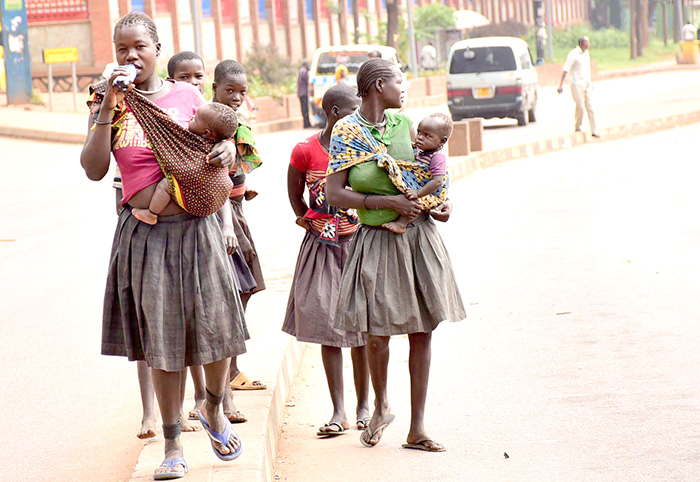
Thousands of children survive in the open in the Ugandan capital, Kampala by begging for money. Residents are fed up and city authorities are struggling to keep the youngest among them off the busy streets.
ROOT CAUSES
- Conflict/War: There has been conflict in Uganda in the north and the northeast for the past thirty years. These conflicts caused many deaths, including many parents leaving children with only one parent or orphaned. These conflicts also incited fear in families which pushed them to relocate to larger cities. Once there, the family cannot find work and therefore they are not able to provide for their families.
- Domestic Violence: Children who witness or experience violence within their homes will sometimes choose to leave home to go to the streets. These children choose to face the unknown perils of street life rather than continue to face the known dangers of living in their homes.

LIVING AND/OR WORKING ON THE STREETS
Children whose families cannot provide for them will spend their days (and sometimes their nights) on the streets. Children who sleep on the streets often huddle together for warmth and protection.
“Uganda has one of the largest populations of young people in the world with over 56 percent of its 37 million people under the age of 18, and more than 52 percent under age 15. Children are also the single largest demographic group living in poverty in Uganda. According to civil society groups who assist street children, local government officials, and police officers of the Child and Family Protection Unit who are tasked to focus on children, the number of Ugandan children living on the streets is increasing. But the total number of street children is unknown.“
“Uganda has one of the largest populations of young people in the world with over 56 percent of its 37 million people under the age of 18, and more than 52 percent under age 15. Children are also the single largest demographic group living in poverty in Uganda. According to civil society groups who assist street children, local government officials, and police officers of the Child and Family Protection Unit who are tasked to focus on children, the number of Ugandan children living on the streets is increasing. But the total number of street children is unknown.“
Uganda has one of the largest populations of young people in the world with over 56 percent of its 37 million people under the age of 18, and more than 52 percent under age 15. Children are also the single largest demographic group living in poverty in Uganda. According to civil society groups who assist street children, local government officials, and police officers of the Child and Family Protection Unit who are tasked to focus on children, the number of Ugandan children living on the streets is increasing. But the total number of street children is unknown.
While on the streets during the day, common activities for children include:
- Searching for food in the garbage
- Begging
- Searching for pieces of scrap metal that can be sold.
- Finding small tasks to do in exchange for food or money. Some examples of the tasks include carrying luggage for people at the bus depot, sorting beans in a market stall, sweeping and doing laundry.
Currently, we don’t have a rehabilitation center for these children but if we get one, these children will spend one year in a rehabilitation class at My Child Your Child Ministries where they will be taught math, reading and writing, but the real skill they will be gaining is a social skill- how to be a child again. After they have completed that class, My Child Your Child Ministries sponsors the children to attend formal schools out in the community.
After children completing primary and secondary school, My Child Your Child Ministries may not have funding to support them to continue their education. This is why we need your support to these children through skill training.
In 2019, Kampala passed a law banning giving money or food to street children. City authorities said the law was aimed at curbing children’s commercial and sexual exploitation. Offenders could face up to six months in prison or a fine of $11 (€7).
The high number of children leaving their homes for the streets has forced child support organizations to think of new strategies for interventions.
In 2019, Kampala passed a law banning giving money or food to street children. City authorities said the law was aimed at curbing children’s commercial and sexual exploitation. Offenders could face up to six months in prison or a fine of $11 (€7).
The high number of children leaving their homes for the streets has forced child support organizations to think of new strategies for interventions.


